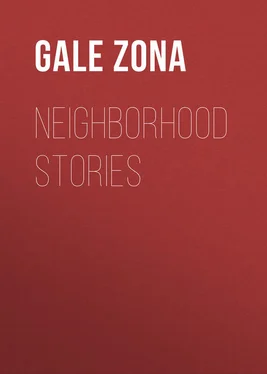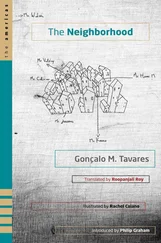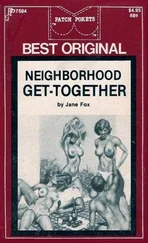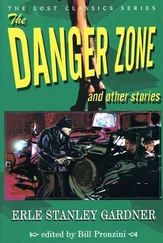Zona Gale - Neighborhood Stories
Здесь есть возможность читать онлайн «Zona Gale - Neighborhood Stories» — ознакомительный отрывок электронной книги совершенно бесплатно, а после прочтения отрывка купить полную версию. В некоторых случаях можно слушать аудио, скачать через торрент в формате fb2 и присутствует краткое содержание. Жанр: foreign_antique, foreign_prose, на английском языке. Описание произведения, (предисловие) а так же отзывы посетителей доступны на портале библиотеки ЛибКат.
- Название:Neighborhood Stories
- Автор:
- Жанр:
- Год:неизвестен
- ISBN:нет данных
- Рейтинг книги:3 / 5. Голосов: 1
-
Избранное:Добавить в избранное
- Отзывы:
-
Ваша оценка:
- 60
- 1
- 2
- 3
- 4
- 5
Neighborhood Stories: краткое содержание, описание и аннотация
Предлагаем к чтению аннотацию, описание, краткое содержание или предисловие (зависит от того, что написал сам автор книги «Neighborhood Stories»). Если вы не нашли необходимую информацию о книге — напишите в комментариях, мы постараемся отыскать её.
Neighborhood Stories — читать онлайн ознакомительный отрывок
Ниже представлен текст книги, разбитый по страницам. Система сохранения места последней прочитанной страницы, позволяет с удобством читать онлайн бесплатно книгу «Neighborhood Stories», без необходимости каждый раз заново искать на чём Вы остановились. Поставьте закладку, и сможете в любой момент перейти на страницу, на которой закончили чтение.
Интервал:
Закладка:
“Yes,” says Silas, agreeful, “I guess it does. Well, they can have some boxes to burn, out of the store. I’ll take ’em on my list. You can’t go givin’ ’em truck, Timothy. If you do, they’ll come down on to you for repairs. Now the Ricker’s…”
Abigail Arnold spoke up. “They’re awful,” she says. “Mis’ Ricker ain’t fit to wash, and the children just show through. Ab’s arm won’t let him work all winter.”
“You take him, Silas,” says Timothy. “He’s your own employee.”
Silas shakes his head. “He’s been chasin’ me for damages ever since he got hurt,” he says.
“Ain’t he goin’ to get any, Silas?” says Mis’ Toplady, pitiful.
“Get any?” says Silas. “It was his own fault. He told me a week before about them belts bein’ wore. I told him to lay off till I could fix ’em. But no – he kep’ right on. Said his wife was sick and his bills was eatin’ him up. He ain’t nobody to blame but his own carelessness. I told him to lay off.”
I looked over to Mis’ Toplady, and she looked over to me. And I looked at Abigail and at Mis’ Holcomb, and we all looked at each other. Only Mis’ Sykes – she set there listening and looking like her life was just elegant.
“Can’t you take that case, Mis’ Toplady?” says Silas.
“I’ll go and see them folks ,” she says, troubled. And I guess us ladies felt troubled, one and all. And so on during all the while we was discussing the Doles and the Hennings and the Bettses and the rest. And when the meeting was over we four hung around the stove, and Mis’ Sykes too.
“I s’pose it’s all right,” Mis’ Toplady says. “I s’pose it is. But I feel like we’d made a nice, new apron to tie on to Friendship Village, and hadn’t done a thing about its underclothes.”
“I’m sure,” says Mis’ Sykes, looking hurt for Silas that had cut out the apron, “I’m sure I don’t see what you mean. Faith, Hope, and Charity, and the greatest of these is Charity. Does that mean what it says, or don’t it?”
“Oh, I s’pose it does,” says Mis’ Toplady. “But what I think is this: Ain’t there things that’s greater than the whole three as most folks mean ’em?”
Mis’ Sykes, she sort of gasped, in three hitches. “Will you tell me what ?” she says, as mad as if she’d been faith, hope, and charity personally.
“I dunno …” says Mis’ Toplady, dreamy, “I dunno the name of it. But ladies, it’s something. And I can feel it, just as plain as plain.”
It was three-four weeks before the new Charity Association got really to running, and had collected in enough clothes and groceries so’s we could start distributing. On the day before the next monthly meeting, that was to be in Post-Office Hall again, we started out with the things, so’s to make our report to the meeting. Mis’ Toplady and I was together, and the first place we went to was Absalom Ricker’s. Gertie, Absalom’s wife, was washing, and he was turning the wringer with his well hand, and his mother was finishing vests by the stove, and singing a tune that was all on a straight line and quite loud. And the children, one and all, was crying, in their leisure from fighting each other.
“Well,” says Mis’ Toplady, “how you getting on now ? Got many washings to do?”
Gertie Ricker, she set down on the wood-box all of a sudden and begun to cry. She was a pretty little woman, but sickly, and with one of them folding spines that don’t hold their folks up very good.
“I’ve got three a week,” she says. “I can earn the rent all right.”
“I tell her,” says Absalom, “if she didn’t have no washings, then there’d be something to cry for.”
But he said it sort of lack-luster, and like it come a word at a time.
“Do you get out any?” says Mis’ Toplady, to improve the topic.
“Out where?” says Gertie. “We ain’t no place to go. I went down for the yeast last night.”
It kind of come over me: Washing all day and her half sick; Absalom by the stove tending fire and turning wringer; his old mother humming on one note; the children yelling when they wasn’t shouting. I thought of their cupboard and I could see what it must hold – cold boiled potatoes and beans, I bet. I thought of their supper-table … of early mornings before the fire was built. And I see the kind of a life they had.
And then I looked over to the two loaves of bread and the can of fruit and the dozen eggs and the old coat of Timothy’s that we’d brought, and it seemed to me these touched the spot of what was the trouble in that house about as much as the smoke that oozed into the room from the chimney. And I glanced over to Mis’ Toplady and there she set, with ideas filterin’ back of her eyes.
“We’ve brought you a few things, being you’re sick – ” she begun, sort of embarrassed; but Absalom, he cut in short, shorter than I ever knew him to speak.
“Who’s we ?” he says.
“Why-a,” says Mis’ Toplady, stumbling some over her words, “the new society.”
Absalom flushed up to the roots of his hair. “What society?” says he, sharp.
Mis’ Toplady showed scairt for just a minute, and then she met his eyes brave. “Why,” she says, “us – and you. You belong to it. We had it in the paper, and met to the Post-Office Hall the other night. It’s for everybody to come to.”
“To do what?” says Absalom.
“Why-a,” says Mis’ Toplady, some put to it, “to – to do nice things for – for each other.”
“The town?” says Absalom.
“The town,” agrees Mis’ Toplady – and pressed ahead almost like she was finding something to explain with. “We meet again to-morrow night,” says she. “Couldn’t you come – you and Gertie? Come – and mebbe belong?”
Absalom’s mad cooled down some. First he looked sheepish and then he showed pleased. “Why, I dunno – could we, Gertie?” he says.
“Is it dress-up?” says Gertie.
“Mercy, no,” says Mis’ Toplady, “it’s every-day. Or not so much so. You’ll come, won’t you?”
“Mebbe,” says Gertie.
When we got outside, I looked at Mis’ Toplady, kind of took aback; and it was so that she looked at me.
“Silas’ll talk charity his way to that meeting, you know,” I says. “I’m afraid he’ll hurt Absalom and Gertie. I’m afraid…”
Mis’ Toplady looked kind of scairt herself. “I done that before I meant to do it no more’n nothing in this world,” she says, “but I dunno – when I begun handin’ ’em out stuff I was ashamed to do it without putting it like I done.”
“I know,” I says, “I know.” And know I did. I’ve give things to poor folks lots of times and glowed up my spine with a virtuous feeling – but something big was always setting somewhere inside me making me feel ashamed of the glow and ashamed of the giving. Who am I that I should be the giver, and somebody else the givee?
We went to the Bettses’ and caught Mis’ Betts washing up two days’ of dishes at four o’clock in the afternoon, and we heard about Joe’s losing his job, and we talked to the canary. “We’d ought not to afford him,” Mis’ Betts says, apologetic. “I always hate to take the money to get him another package of seed – and we ain’t much of any crumbs.”
And we went to the Haskitts’ and found her head tied up with the toothache. Folks looks sick enough with their heads tied up around ; but when it comes to up and down, with the ends sticking up, they always look like they was going to die. And we went to the Doles’ and the Hennings’ and carried in the stuff; and one and all them places, leaving things there was like laying a ten-cent piece down on a leper, and bowing to him to help on his recovery. And every single place, as soon as ever we’d laid down the old clothes we’d brought, we invited ’em to join the organization and to come to the meeting next night.
Читать дальшеИнтервал:
Закладка:
Похожие книги на «Neighborhood Stories»
Представляем Вашему вниманию похожие книги на «Neighborhood Stories» списком для выбора. Мы отобрали схожую по названию и смыслу литературу в надежде предоставить читателям больше вариантов отыскать новые, интересные, ещё непрочитанные произведения.
Обсуждение, отзывы о книге «Neighborhood Stories» и просто собственные мнения читателей. Оставьте ваши комментарии, напишите, что Вы думаете о произведении, его смысле или главных героях. Укажите что конкретно понравилось, а что нет, и почему Вы так считаете.












